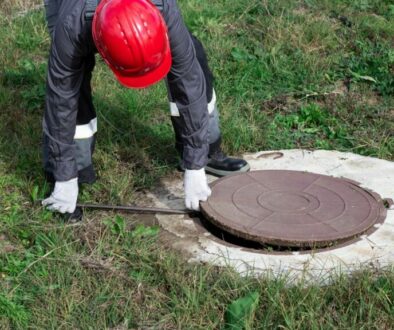How To Become A Flight Attendant?
If you are looking for a profession that is exciting and interesting, and also provides opportunities for growth, then becoming a flight attendant might be just what you need.
Steps To Becoming A Flight Attendant
Are you interested in becoming a flight attendant? It’s a unique career path that offers a lot of excitement and travel opportunities. However, before you start packing your bags, there are a few things you need to know about the process of becoming a flight attendant.
- Research the Requirements of Different Airlines
First and foremost, it’s important to research the requirements of different airlines. Each airline has its own set of qualifications and requirements for flight attendants, so it’s crucial to find out what these are before proceeding any further. Some airlines may require a certain level of education or previous work experience, while others may have specific physical requirements.
- Apply for Positions
Once you have a good understanding of the requirements, you can start applying for positions with the airlines of your choice. Keep in mind that vacancies for flight attendants are usually openly advertised, and you can submit your application to the airline either through their website or career portal, or by contacting the airline directly.
- Complete Necessary Training
If your application is successful, you will be invited to complete the necessary training required by the airline. This training can last up to six weeks and covers everything from emergency procedures to customer service techniques. During this time, you’ll also learn about the various types of aircraft and equipment used by the airline.
- Pass Screening Process
After completing your training, you’ll need to pass the airline’s screening process. This usually includes an interview, background check, and drug test. It’s important to be honest and transparent during this process, as any discrepancies can result in your application being rejected.
- Begin Your New Career
Assuming you pass the screening process, you’ll be given a starting date and begin your new career as a flight attendant. This is where the real fun begins! As a flight attendant, you’ll be responsible for ensuring the safety and comfort of passengers during flights. This includes tasks such as serving meals and drinks, providing first aid, and handling any emergencies that may arise.
Overall, becoming a flight attendant can be a challenging but rewarding career path. If you’re passionate about travel and enjoy working with people, it could be the perfect choice for you. So why not start researching the requirements and applying for positions today?
Skills Needed For Becoming A Flight Attendant
Now that you have an idea of the process for becoming a flight attendant, let’s look at the skills you need to be successful in this profession.
Being a flight attendant is a demanding job that requires a unique set of skills and abilities. Here are some of the key skills that you need to have to become a successful flight attendant:
- Communication: One of the most important skills for a flight attendant is the ability to communicate effectively. As a flight attendant, you will need to communicate with passengers and crew members on a regular basis. You need to be able to speak clearly and confidently, and be able to understand and respond to different accents and languages.
- Customer service: Flight attendants are often the first point of contact for passengers, so it is important to have excellent customer service skills. You need to be able to handle difficult passengers and situations with tact and diplomacy, and be able to provide assistance and support to passengers when they need it.
- Problem-solving: There will be times when you need to think outside the box to solve problems on the fly, so being able to handle pressure and come up with solutions quickly is vital. You need to be able to assess situations quickly and make decisions that are in the best interests of the passengers and crew.
- Flexibility: Flight attendants work odd hours and are often required to adjust their schedules at short notice. You need to be able to adapt to changing situations and be able to work well under pressure.
- Attention to detail: As a flight attendant, you will be responsible for ensuring that all safety procedures are followed and that passengers are comfortable and well-cared for. You need to be able to pay close attention to detail and be able to spot potential problems before they become major issues.
- Physical fitness: Flight attendants need to be physically fit and healthy in order to perform their duties effectively. You will need to be able to lift heavy objects, stand for long periods of time, and be able to move quickly and efficiently in the event of an emergency.
These are just a few of the skills that you need to have in order to become a successful flight attendant. If you are interested in pursuing a career in this field, it is important to start developing these skills as early as possible.
What Is A Flight Attendant?
Now that you know the skills and requirements for becoming a flight attendant, let’s talk more about the job itself.
A flight attendant is a professional who works on aircraft to ensure the safety and comfort of passengers. They are the face of the airline and are responsible for creating a positive experience for passengers. Flight attendants are trained to handle various situations, including medical emergencies, turbulence, and even terrorist threats.
One of the primary duties of a flight attendant is to prepare and serve food and drinks to passengers. They are responsible for ensuring that passengers are provided with adequate food and beverages during the flight. They also ensure that passengers with special dietary requirements are catered for.
Another important responsibility of a flight attendant is to assist passengers with their luggage. They help passengers store their carry-on luggage in the overhead bins and ensure that the cabin is free of any loose items that could pose a safety hazard during takeoff and landing.
During emergency situations, flight attendants play a critical role in directing passengers and ensuring their safety. They are trained to handle various emergency situations, including fires, medical emergencies, and even terrorist threats.
Flight attendants are also responsible for ensuring that all safety procedures are followed. They conduct safety demonstrations before takeoff to ensure that passengers are aware of the safety procedures on board. They also ensure that passengers are wearing their seatbelts during takeoff, landing, and turbulence.
Finally, flight attendants are responsible for cleaning and maintaining the cabin in between flights. They ensure that the cabin is clean and tidy for the next set of passengers. They also restock the cabin with food, beverages, and other supplies.
As you can see, flight attendants play a crucial role in keeping airline passengers safe and comfortable while on board and responsible for a wide range of tasks. It is a challenging but rewarding job that requires a unique combination of skills and personality traits.
The Benefits of Working as A Flight Attendant
Working as a flight attendant is an exciting and dynamic career that offers a range of benefits. In addition to the thrill of traveling around the world and experiencing different cultures, there are several other advantages to becoming a flight attendant.
Travel Opportunities
One of the most significant benefits of working as a flight attendant is the opportunity to travel. Flight attendants get to explore new destinations and experience different cultures. Whether it’s a weekend in Paris or a week in Tokyo, flight attendants have the chance to see the world and broaden their horizons.
Moreover, flight attendants may get to travel to some of the most exotic and remote locations in the world, such as the Caribbean, the Maldives, or the Seychelles. They get to visit places that many people only dream of and experience things that they may never have the chance to do otherwise.
Flexible Schedules
Another benefit of working as a flight attendant is the flexibility of the job. While the hours can be challenging, flight attendants have a lot of control over their schedules and can often arrange time off to suit their needs. This flexibility is particularly useful for those who have other commitments, such as family or studies.
Moreover, flight attendants can take advantage of their flexible schedules to pursue other interests or hobbies. For example, they may have the opportunity to take language classes or learn a new skill while traveling to different destinations.
Great Pay and Benefits
Flight attendants are well-compensated for their work, with salaries that are often above average. In addition to a competitive salary, many airlines offer generous benefits and perks, such as health insurance, retirement plans, and travel discounts.
Moreover, flight attendants may also receive bonuses for exceptional performance or for working on holidays or weekends. These bonuses can add up quickly and provide a significant boost to a flight attendant’s income.
Overall, pursuing a career as a flight attendant can be a rewarding, challenging, and exciting adventure. With the right qualifications, skills, and training, becoming a flight attendant can open up a world of opportunity and give you a chance to explore the world while doing what you love.




